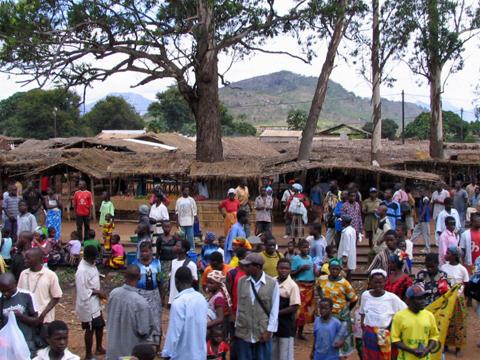U.S. commits $160 million in HIV, and TB support for Mozambique
STAE agrees to lend premises to INE for Census

File photo
Mozambique’s Electoral Administration Technical Secretariat (STAE), the body responsible for the organizational side of elections, has agreed to lend premises and staff to the National Statistics Institute (NE) for the national population census scheduled for August.
STAE and the INE signed a memorandum of understanding in Maputo on Wednesday which lays down the bases for cooperation whereby STAE will provide services and make warehouses and other premises available for census purposes.
For its part, the INE will train STAE staff in how to use and interpret statistical information. It will share data of mutual interest with STAE, and the two bodies will collaborate to update their data bases.
Speaking at the ceremony, the general director of STAE, Felisberto Naife, said the agreement seeks to maximize the use of resources and facilities. The census was “a fundamental moment” for the two bodies to cooperate.
“STAE has made a great deal of use of the INE’s capacity in terms of statistical data”, added Naife. “These are the basis for our activities in projecting the size of the electorate and then defining the number of parliamentary seats that should be allocated to each constituency”.
For his part, INE director Rosario Fernandes said the memorandum is a mechanism “to enhance aspects of mutual interest in the convergence of strategy and building up the data base”.
He said that, in the preparations for the census, the INE has carried out fully a mapping exercise, covering 72,770 enumeration areas in all 161 districts, 437 administrative posts, and 1,607 localities of the country. Digitalisation of this data had been completed, with the exception of some districts and administrative posts in Zambezia and Maputo provinces, where the INE expected to finish the task by the end of this month.
About 175,000 people will be hired to work temporarily for the INE to take the census. The aim, Fernandes said, was to be as exhaustive as possible, with minimal rates of omission.
He regarded STAE and the National Elections Commission (CNE) as “strategic partners” in building the data base, which should be guided by principles of universality, impartiality, neutrality and transparency.












Leave a Reply
Be the First to Comment!
You must be logged in to post a comment.
You must be logged in to post a comment.